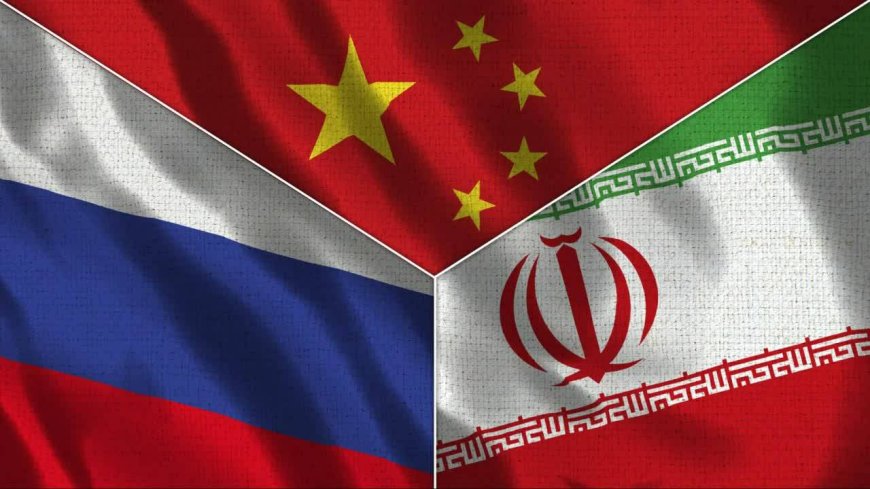A Decade of Strengthening Ties: Unveiling the China-Russia-Iran Nexus

The intricate tapestry of relations between China and Russia has witnessed a remarkable surge in momentum over the past decade. The doubling of trade exchanges between the two global powers and the pivotal signing of significant agreements spanning economic, energy, military, and space domains stand as poignant testaments to the burgeoning cooperation between Beijing and Moscow. Notably, the political stances of these nations on various crucial international and regional issues have conspicuously converged or maintained close proximity in recent years. A shared antipathy towards the American liberal order and the prevailing unipolar system underscores a foundational pillar of their alliance.
Central to the fabric of Sino-Russian relations is the meticulous coordination of their positions on pivotal political and international matters, setting them apart from other major world players. Their collective opposition to the liberal American paradigm, unilateral Western sanctions, particularly those imposed by the United States, and mutual alignment on issues concerning North Korea, Syria, Afghanistan, Belarus, Persian Gulf security, Iran, climate change, disarmament, among others, reflects a symbiotic partnership rooted in shared values. Even in instances like the crises in Ukraine and the South China Sea, where reservations exist with other pertinent nations, the overarching harmony in the positions of both sides remains resolute, safeguarding the integrity of their collaborative stance.
In matters concerning international organizations, notably the UN Security Council, Russia and China have consistently stood against the unilateral actions of the West, particularly the United States, reiterating their commitment to a multipolar world order.
Coordinated Diplomacy in the Middle East: A Strategic Alliance
Recent years have witnessed a synchronized diplomatic dance between Russia and China in the Middle East, epitomized by their joint opposition to sanctions against Syrian President Bashar al-Assad's regime for alleged chemical weapons usage at the UN Security Council. Notably, the two nations successfully thwarted American endeavors to prolong the arms embargo on Iran in 2020. Their shared skepticism and wariness towards the Arab Spring uprisings in 2011 and vehement opposition to NATO's intervention in Libya underscore a strategic alignment in safeguarding regional stability.
However, beneath the veneer of unity lies subtle divergence in strategic objectives. While China aspires to solidify its global stature and shape the contours of the next world order through initiatives like the Belt and Road Initiative (BRI), Russia's regional strategy pivots on a nuanced equilibrium, occasionally engaging non-state actors to fortify its geopolitical foothold.
Unity Amidst Discord: The Iran-Russia-China Trifecta
The convergence of interests between Iran, Russia, and China in reshaping the Middle Eastern geopolitical landscape underscores a paradigm shift in regional power dynamics. Despite historical competition over Asian trade routes, the tumultuous actions of Washington and Tel Aviv have galvanized a newfound camaraderie among the trio. Anchored in a shared vision of a multipolar world order, this coalition underscores the collective pursuit of stronger economic ties as the bedrock of their burgeoning alliance.
Recent events, including the incursion of the Israeli regime into the Iranian consulate and subsequent missile attacks, have further solidified the solidarity between Iran, Russia, and China. The unwavering support extended by Moscow and Beijing to Tehran in moments of crisis underscores a strategic alignment that poses a formidable challenge to the Western hegemony in the region. The burgeoning anti-Western axis not only fortifies Iran's deterrence capability but also heralds a new era of strategic collaboration that could potentially circumvent sanctions, tip the scales in conflicts, and reshape the regional and international power dynamics.
As the sands of international relations continue to shift, the China-Russia entente emerges as a formidable force shaping the geopolitical landscape, challenging the status quo, and heralding a new dawn of multipolar diplomacy.













































